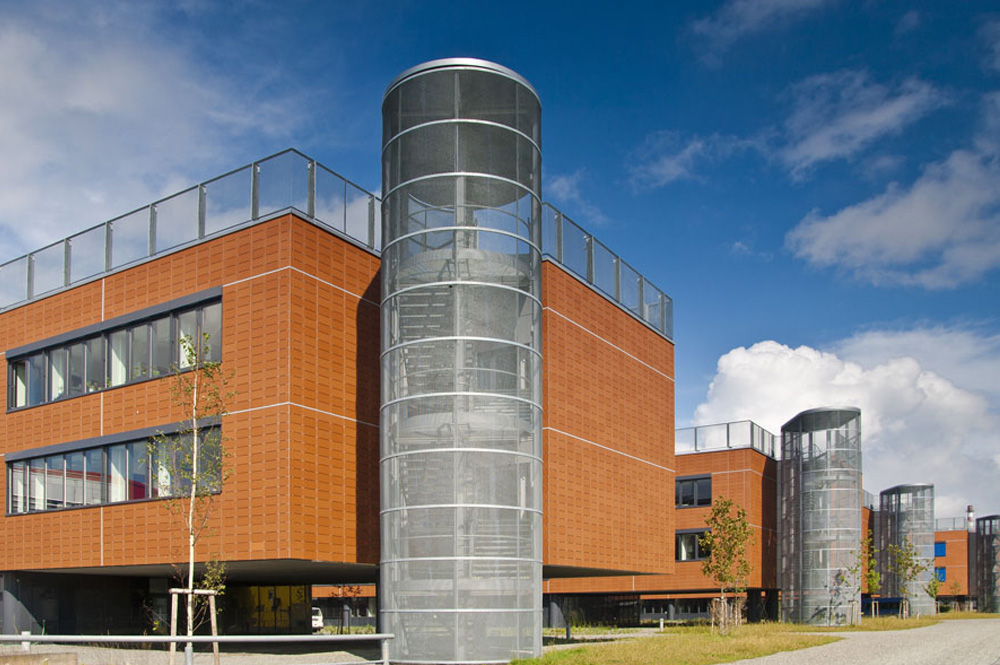Masaryk Univerzity – RECETOX

The RECETOX Centre is an independent institute of the Faculty of Science of Masaryk University in Brno. It is engaged in research and teaching in the field of environmental and health risk management related to chemicals around us.
The long-term goal of the RECETOX Centre is to carry out top research and use its results to protect the environment and human health. The research focuses on the study of relationships between chemicals, the environment, and biological systems, including the monitoring of their impact at the local, regional and global levels. New approaches are being developed to study the distribution, transport, bioaccumulation, and effects of contaminants, including environmental and health risk assessment, environmental modelling, biostatistics, and environmental informatics. The broad scope of activities of the Centre’s staff makes it possible to examine the interdisciplinary relationships between ecosystem contamination and population health, biodiversity or climate change, to assess local and regional impacts, and to develop new remediation and decontamination technologies. The aim is to acquire new data and knowledge and make it available for qualified decision-making at all levels. Education plays the key role in this process, covering not only the university students, but also experts from practice and the wide public. The RECETOX provides education within study programs linking biology, chemistry, epidemiology, environmental sciences, mathematics, statistics and computer science. The studies can be undertaken in bachelor’s, master’s and doctoral degrees.
The research activities of the Centre take advantage of the most modern research infrastructure which is partially centralized into separate units, the so-called core facilities. The research infrastructure operates on the principle of “open access” within which it provides its capacities to internal and external users. The chemical trace analysis laboratory offers state-of-the-art equipment and experienced staff for the analysis of a wide range of environmental samples and human body matrices. It implements a range of long-term national and international monitoring programs, laboratory and field-studies, as well as providing analytical support to cooperating institutions in the framework of joint projects and contract research. It operates in accordance with strict QA/QC protocols, uses validated methods and regularly participates in proficiency testing. The Global Environmental Assessment and Information System (GENASIS) is a central unit of the Centre’s research infrastructure providing information on concentrations of substances in the environment and human body tissues to the scientific community, policymakers, lawmakers and the wide public. The data collected from the Centre’s long-term monitoring programs are linked to data from other sources in order to support decision-making at the national and international level and the implementation of multilateral environmental agreements (www.genasis.cz, www.pops-gmp.org).
The RECETOX Centre has been involved in building infrastructure, developing research activities and expertise of the Košetice observatory since its establishment in 1988. It ensures integrated monitoring of persistent organic pollutants (POPs) for the Convention on Long-range Transboundary Air Pollution (CLRTAP) and the Stockholm Convention (SC) including management, evaluation and presentation of available data. The project is supported by the accredited RECETOX chemical trace analysis laboratory offering state-of-the-art equipment and experienced staff for the analysis of a wide range of environmental samples.
Key activities:
- Long-term monitoring of POPs in the ambient air and atmospheric deposition at the Košetice observatory as a Central European background station of the EMEP network, which has been implemented for CLRTAP since 1988 and whose results are made available to the common EMEP database;
- Passive sampling of POPs in the ambient air carried out since 2003 at the Košetice observatory as an inter-calibration station of the international MONET and GAPS passive monitoring networks set up to support the Global Monitoring Plan (GMP) of the Stockholm Convention on POPs (www.genasis.muni.cz, www.pops-gmp.org).
- Integrated monitoring of POPs in ambient air, atmospheric deposition, surface water, sediment, soil, moss, and lichen, carried out since 1988 for the detailed study of the fate of these compounds in the environment and data acquisition for the development and validation of models.
- Studies focusing on the efficiency of POPs removal from the atmosphere by dry and wet deposition processes and the use of this new knowledge in developing new models.
- Research activities include monitoring of persistent organic pollutants (POPs) including those newly added to the Stockholm Convention, polycyclic aromatic hydrocarbons (PAHs), substituted PAHs, and polar compounds in abiotic samples (air, atmospheric deposition, water, soil, sediments) and biotic samples (conifer needles, mosses) components of the environment.
The goal of the RECETOX Centre is to further expand the spectrum of monitored substances at the Košetice observatory to increase the availability and use of data for monitoring spatial and temporal trends, as well as environmental and human risks.
